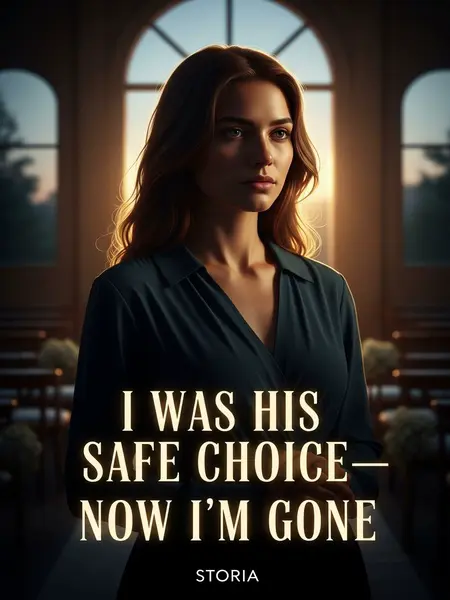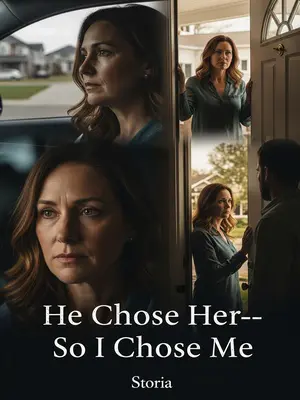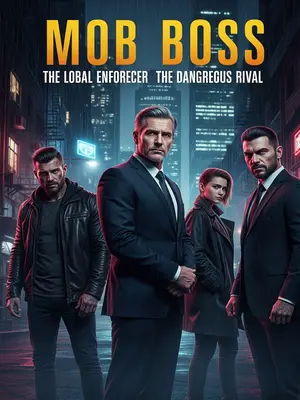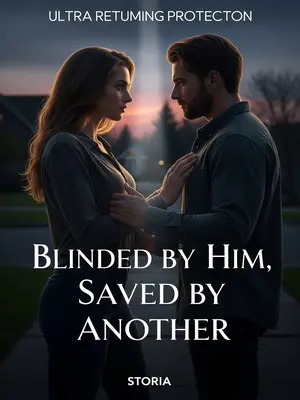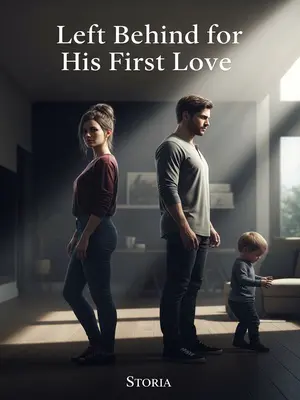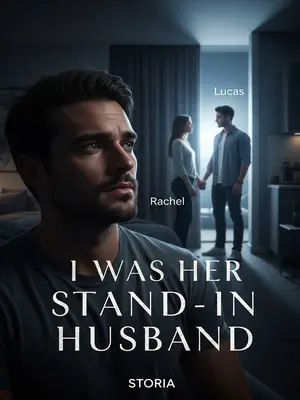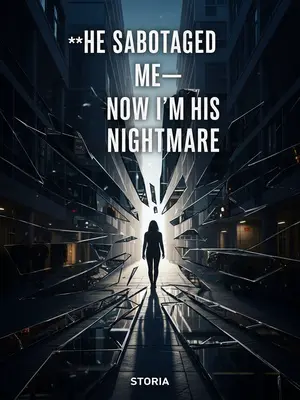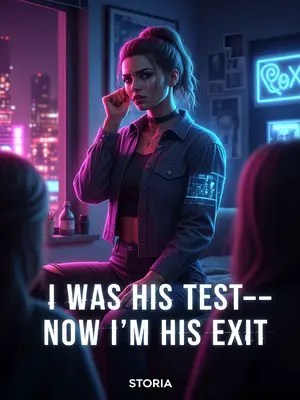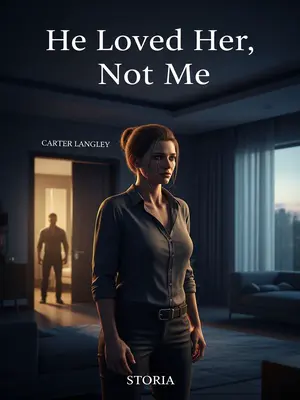Chapter 4: The Flowers and the Farewell
I ignored him and went to the study. But the desk was empty.
Panic flared in my chest. I searched the room, hands shaking. The camera was gone.
I rasped, “Where’s my camera?”
My voice cracked, raw with fear. I prayed he hadn’t done what I thought he had.
“I gave it to Jordan.”
His words hit me like a slap. I spun around, disbelief turning to rage.
I spun around. He crossed his arms and sneered, “Didn’t you tell her to take more pictures?”
He shrugged, as if it were nothing. I saw red.
My brain struggled to process. He’d actually given my mom’s camera to Jordan?
I felt something inside me snap. Years of trying to be good, to be enough, crumbled in an instant.
Suddenly I smashed the glass in my hand, grabbed his collar. “How dare you touch my camera! How dare you!”
The glass shattered, water spilling across the floor. I lunged at him, years of pent-up anger boiling over. He looked shocked, like he’d never seen me before.
Mason was startled. “Where’s Jordan now?”
He tried to pull away, but I held on, desperate.
“Addie! Let go!”
His voice was sharp, but I didn’t care. I needed answers.
“Where is she?!”
I tore at his collar, hysterical. The wine I drank last night poured from my eyes as tears.
The sobs wracked my body, but I refused to let go. I needed that camera back—needed it more than anything.
Mason froze. “…She’s at the Maplewood Grand Hotel.”
His voice was small, almost afraid. I released him, stumbling backward.
“Room number!”
I wiped my face with the back of my hand, breath coming in ragged gasps.
“1103…”
I shoved him aside and rushed out. Drove straight to the hotel, up to the 11th floor, and pounded on the door. “Open up!”
My knuckles stung, but I didn’t stop. I would tear the door off its hinges if I had to.
After a while, Jordan angrily opened up. “Why are you going crazy so early in the morning!”
Her hair was a mess, eyes puffy from sleep. I didn’t care. I pushed past her, scanning the room.
I rushed in. Sure enough, the camera was on the TV stand. I grabbed it to leave, but Jordan stopped me.
She blocked the door, arms crossed. “That’s something Mason gave me! Why should you take it back?”
I turned and slapped her. “It’s mine—why should you have it!”
The slap echoed in the room, sharp and final. She stared at me, stunned.
She was stunned. After a moment, she screamed, “You dare hit me!”
Her scream was shrill, desperate. She lunged at me, nails flashing.
She lunged at me, crying and scratching. “You bitch! You already stole him! Now you want to take what he gave me too!”
We crashed into the TV stand, the camera slipping from my grasp. The strap caught, snapping with a sickening sound.
In the struggle, the camera’s fragile strap snapped. Jordan grabbed the body and smashed it hard on the ground.
A loud crash. My mind went blank. The camera shattered into pieces before my eyes. There was cruel pride in Jordan’s eyes.
“If I can’t have it, neither can you!”
Her words were a knife, twisting in the wound. I saw red.
A wave of despair and rage crashed over me. I grabbed Jordan’s head and slammed it against the wall. Just once, and she started bleeding. She screamed, “Help! Murder!”
The world went fuzzy at the edges. I barely registered the blood, the screaming, the pounding on the door.
The hotel room door burst open. Mason rushed in. When he saw Jordan, his eyes went wild. He pinned me to the wall.
His hands were rough, his voice frantic. I barely heard him over the roaring in my ears.
“Addison! Are you out of your mind?!”
Jordan, trembling behind him, touched her forehead, legs shaking. “…Mason, I’m so scared.”
Her voice was small, pitiful. I didn’t care. I was beyond caring.
I shoved him away and dropped to the ground, trying in vain to piece the camera fragments together with shaking hands. My fingertips were cut by glass, but I didn’t care. No matter how I tried, the pieces wouldn’t fit.
The blood smeared across my hands, but I kept going, desperate. The camera was gone, and with it, the last piece of my mother.
Mason grabbed my hand. “Calm down! It’s broken! It can’t be put back together!”
He tried to pull me away, but I fought him, sobbing.
I shook, tears streaming down my face. He gritted his teeth. “It’s just a broken camera! Just buy another one! Is it worth losing your mind over this?!”
His words were a slap, colder than the Ohio winter. He didn’t get it—he never would.
I bit my lip until it bled, the taste of blood filling my mouth. Just a broken camera. This was my mom’s only keepsake, and he called it just a broken camera.
The pain was sharp, grounding. I looked up at him, hatred boiling in my chest.
I looked up, unable to suppress the hatred in my heart, and suddenly slapped Mason. The blood on my fingertips smeared his face.
The mark was bright against his skin, a reminder he couldn’t ignore.
“Mason Grant, get out! Get out!”
My voice was raw, ragged. I meant every word.
In his shocked gaze, I took off my engagement ring and threw it in the trash. I packed my things and went back to my hometown—to see my mom.
I left without looking back, the ring clattering into the trash. The drive home was a blur—gray skies, endless fields, the taste of salt and iron on my tongue.
I sat in front of her grave all day. During that time, Mason called me countless times. I didn’t answer, and blocked him. Sometimes I felt ashamed. If my mom saw what I’d become these past years, would she be disappointed? I let her down. I hadn’t become proud, brave, or strong. Instead, I wasted three years on a man who wasn’t worth it.
I talked to her in whispers, telling her everything I couldn’t say out loud. The shame and regret threatened to swallow me whole, but I stayed. I owed her that much.
On the third day, I went to the cemetery as usual. But this time, I saw something unexpected by the headstone—a pot of bird of paradise flowers. My heart pounded wildly. That was my mom’s favorite flower. Who had come?
I knelt by the flowers, tracing the petals with trembling fingers. They were fresh, vibrant—a message from someone who remembered.
I ran to the cemetery office to ask. They told me that every few months, someone sent them. Then they gave me an address.
My heart raced as I clutched the slip of paper. I knew, deep down, who it was. But I needed to see for myself.
I had a hunch, but didn’t dare believe it. Following the address, I found a flower shop. The owner told me that about three years ago, she’d received an order to place a pot of bird of paradise at Ms. Diane Lane’s grave every three months. The person had paid for three years in advance, so she remembered clearly.
The shop was small, overflowing with blooms. The owner’s eyes were kind, her voice gentle. She remembered the order right away, her face lighting up with recognition.
My heart almost jumped out of my chest. “…Do you know who it was?”
I held my breath, waiting for her answer.
The owner checked her records. “His last name’s Ji—Mr. Jesse. But we haven’t been able to reach him for a long time. There was a supply issue once, and we wanted to ask if we could send something else, but he never replied.”
Her words were a balm, soothing the ache in my chest. Jesse. It had to be him.
“Do you know him?”
She looked up at me, suddenly worried. “…Miss, are you okay?”
I wiped my sore eyes and waved her off. “I’m fine. Really.”
I forced a smile, trying to hold myself together. She saw right through me, her kindness making it harder to keep the tears at bay.
She was kind. She handed me a pack of tissues and made me a cup of herbal tea, then went to tend the flowers.
I sat in the corner, sipping the tea, letting the warmth seep into my bones. For the first time in days, I felt a flicker of hope.
I calmed down in the shop for a long time, finally picked a bunch of daisies, and was about to leave. As I was paying, the owner stopped me.
She reached across the counter, her eyes soft. “Wait a second, honey.”
“You don’t need to pay for this bouquet.”
I was confused. She looked nostalgic. “Miss, I remember now. Mr. Jesse also said that if someone ever came to ask about the order, and she came alone, I should give her a bouquet and tell her: Keep going—the stars will show you the way.”
Her words hit me like a wave, knocking the breath from my lungs. I clutched the daisies to my chest, tears streaming down my face.
That day, I cried my heart out in front of my mom’s grave. I never expected him to appear by my side in this way. Even more, I never expected that even now, I still needed his comfort. What kind of preparation must he have made to leave those words with the shop owner? Only I understood—‘if she comes alone’ meant: he was no longer by my side.
I knelt in the grass, the bouquet cradled in my lap. The sky overhead was wide and blue, the world full of possibilities. For the first time in a long time, I felt seen—really seen.
That evening, a colleague called. “Addie, your plane ticket is booked for next week. Who do you want to list as the beneficiary for your life insurance? Your husband?”
Her voice was brisk, businesslike. I hesitated, then shook my head.
I shook my head. “Please list Doctors Without Borders.”
“Doctors Without Borders?”
“Yes.” I sniffed. Because… he works for Doctors Without Borders.
I stared out the window, watching the sun dip below the horizon. The world was waiting, and I was finally ready to meet it on my own terms.
Staggering out of the cemetery gate, I saw an unexpected figure. It was Mason—unshaven, haggard. When he saw me, he didn’t say a word, just handed me a box. Inside was a camera, the same model as my mom’s.
He looked older, smaller somehow. The box shook in his hands as he held it out to me. I took it, but didn’t open it right away.
“The old one couldn’t be fixed.”
His voice was quiet, almost apologetic. I met his eyes, searching for something—regret, maybe, or understanding. But all I saw was exhaustion.
We looked at each other in silence. I didn’t know how he found me, or where he found a camera from 1994. But what I cherished was already gone. Even if I got an identical one, what was the point?
The box felt heavy in my lap, a poor substitute for what I’d lost. I set it aside, my heart already moving on.
Seeing that I didn’t take it, he pressed his forehead, exhausted. “Come back with me! The wedding’s next week, invitations have already gone out. If you keep making trouble, it won’t end well.”
His words sounded hollow, like he was reading from a script. I almost felt sorry for him, trapped in a life he never really chose.
I found it ironic. “In your eyes, am I the one making trouble?”
My voice was steady, calm. I finally understood: I was never the problem. I was just done pretending to be someone I wasn’t. I turned away, the daisies still clutched in my hand, and walked into the fading light, ready to write my own story.
